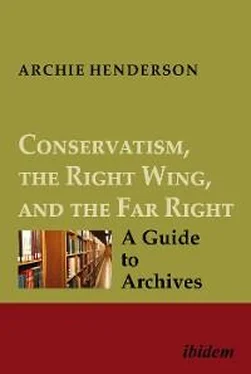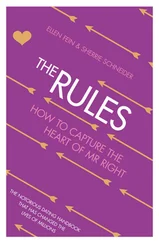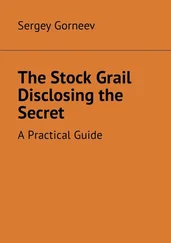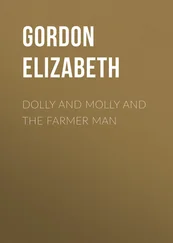Websites with information:
http://www.valdosta.edu/academics/library/depts/archives-and-special-collections/finding-aids/welcome.php
Database search engine:
http://archives.valdosta.edu/research/civilrightssearch.shtml
[0571] The Civil Rights Digital Library [digital collection]
Location: Digital Library of Georgia, University of Georgia Libraries, University of Georgia, Athens, Georgia 30602-1641
Description: The Civil Rights Digital Library features a collection of unedited news film from the WSB (Atlanta) and WALB (Albany, Ga.) television archives held by the Walter J. Brown Media Archives and Peabody Awards Collection at the University of Georgia Libraries. In addition to the news film, the digital library includes related collections from 75 libraries, archives, and museums across the nation. Most are original documentation of the period, such as oral histories, letters, diaries, FBI files, and photographs. Among the 261 collections are Baldy Editorial Cartoons, 1946-1982, 1997: Clifford H. Baldowski Editorial Cartoons at the Richard B. Russell Library (0226); Clinton High School Desegregation from the Knoxville Journal Collection (0598); Eyes on the Prize Interviews (0936); Los Angeles Daily News Negatives, 1925-1954 (1755); Series 2515: Mississippi State Sovereignty Commission Records Online, 1994-2006, Folders (1934); Series 2515: Mississippi State Sovereignty Commission Records Online, 1994-2006, Photographs (1934); Sixteenth Street Baptist Church Bombing Collection (2673); Southern Courier: A Weekly Newspaper Covering Civil Rights in the South, 1965-68; Southern School News, Volume 1, Issue 1 (September 1954)-Volume 11, Issue 12 (June 1965) (139 items); and Stetson Kennedy Papers (1492). Items include a WSB-TV newsfilm clip of governor Marvin Griffin addressing the General Assembly on segregation and keeping public schools open, Atlanta, Georgia, 1956; Mississippi State Sovereignty Commission photograph of Edward R. Fields, Macon, Georgia, 1960s; a Barnett Bumper Sticker; Mississippi State Sovereignty Commission reports and correspondence; a letter from Erle Johnston, Jr., to Northern newspaper editors, 1969; and the following pamphlets: Review of Black Monday, by Thomas P. Brady, October 28, 1954; Interposition or nullification, by M. M. McGowan (n.d. [1954]); Lawyer challenges the U. S. Supreme Court, by Hugh V. Wall, June 23, 1955; We've reached era of judicial tyranny, by James O. Eastland, December 1, 1955 [online at http://digilib.usm.edu/cdm/ref/collection/manu/id/1896]; Interposition, the barrier against tyranny, by John Bell Williams, January 25, 1956; Educational fund of the Citizens' Council (n.d. [1956]); Mixed schools and mixed blood, by Herbert Ravenel Sass (1956); Congressman James C. Davis speaks to the States' Rights Council, by James C. Davis, November 28, 1956; Trickery, treachery, tyranny and treason in Washington, by Joseph P. Kamp, April 1957; Segregation is constitutional but compulsory integration is unconstitutional, by W. L. Eason (n.d. [1958]); Are you aware of the planned Negro invasion? (1959); Mississippi State Junior Chamber of Commerce. Oxford: a warning for Americans, October 1962; Blueprint for Total Federal Regimentation: Analysis of the Civil Rights Act 1963, by Loyd Wright and John C. Satterfield (Washington, D.C., The Co-ordinating Committee for Fundamental American Freedoms, 1963) [online at http://digilib.usm.edu/cdm/compoundobject/collection/manu/id/494/rec/1]; Attitudes in Mississippi, by Erle Johnston (1967); and Jewish view on segregation ([n.d.]) [online at http://digilib.usm.edu/cdm/compoundobject/collection/manu/id/1948].
List of collections:
http://crdl.usg.edu/collections/
http://crdl.usg.edu/collections/?Welcome
Finding aids:
http://crdl.usg.edu/
http://crdl.usg.edu/export/html/usm/crmda/crdl_usm_crmda_eej010.html
[0572] Civil Rights During the Eisenhower Administration, Part 1: White House Central Files. Series A: School Desegregation (Bethesda, MD, A UPA Collection from LexisNexis, 2006) [microfilm]
Description: The documents reproduced in this publication are from the Papers of Dwight D. Eisenhower in the custody of the Dwight D. Eisenhower Library, National Archives and Records Administration. Contains material on the crisis in Little Rock, Arkansas, where Governor Orval E. Faubus ordered the Arkansas National Guard to prevent nine black children from entering Central High School; the Faubus decision to close Little Rock public schools in the fall of 1958, rather than allow them to integrate, as well as their reopening and permanent integration in 1959. Also contains material on the integration in 1956 of Clinton High School in Clinton, Tennessee, including the deployment of National Guard troops, the tactics and arrest of agitator Frederick J. Kasper, and the stabilizing actions of principal D. J. Brittain, Jr. Correspondents include Bruce Alger, Byron De La Beckwith, Tom P. Brady, Virginius Dabney, Everett M. Dirksen, Dwight D. Eisenhower, Milton S. Eisenhower, Orval E. Faubus, W. C. George, G. T. Gillespie, Marvin Griffin, Roy V. Harris, David Lawrence, Noah M. Mason, Theodore R. McKeldin, Westbrook Pegler, Leander H. Perez, Samuel B. Pettengill, Carleton Putnam, Maxwell M. Rabb, Fred Schwarz, W. J. Simmons, Dan Smoot, John Sparkman, John Stennis, Herman E. Talmadge, Henry J. Taylor, Strom Thurmond, Kenneth D. Wells, and J. Arthur Younger. Topics include alleged biblical support for segregation; American States' Rights Association; anti-Semitism; anti-integration actions; D. J. Brittain, Jr.; Brown v. Board of Education; Central High School (Little Rock, Arkansas); church bombings; Citizens Councils of America; citizens' councils; Clinton, Tennessee; Communism; desegregation; Orval E. Faubus; House Un-American Activities Committee; integration; Frederick J. Kasper; Ku Klux Klan; Little Rock, Ark., crisis; lynching; miscegenation as "un-American"; mixed marriage ban; NAACP as Communist front; Westbrook Pegler; Carleton Putnam; racial violence; racial discrimination; school desegregation; school bombing; segregation; "Southern Manifesto" (March 12, 1956), opposing desegregation; states' rights; States' Rights Council of Georgia; John Stennis; and Horace V. Wells.
Finding aids:
http://cisupa.proquest.com/ksc_assets/catalog/101150.pdf
http://www.roosevelt.nl/sites/zl-roosevelt/files/civil_rights_during_the_eisenhower_administration_part_1__
white_house_central_files_series_a__school_deegregation.pdf
[0573] Civil Rights During the Kennedy Administration, 1961-1963. Part 1: The White House Central Files and Staff Files and the President's Office Files. A collection from the holdings of The John F. Kennedy Library, Boston, Massachusetts (Frederick, Maryland, University Publications of America, Inc., 1986) [microfilm]
Description: Part 1 of Civil Rights during the Kennedy Administration is drawn from three major record groups found at the John F. Kennedy Library: the White House Central Files (in particular, the Subject File), the White House Staff Files, and the President's Office Files. Names and subjects include anti-poll tax amendments, anti-Semitism, Ross R. Barnett, bombings, civil rights legislation, civil rights, Communism, desegregation, discrimination, Orval E. Faubus, Senator Philip A. Hart, J. Edgar Hoover, integration, Jim Crowism, Curtis E. LeMay, massive resistance, Benjamin Muse, poll tax, pro-segregation groups, race relations, racism, reverse Freedom Riders, school integration, segregated schools, segregation, Senator John Sparkman, Senator Strom Thurmond, University of Mississippi integration, George C. Wallace, and White Citizens' Councils.
Finding aid:
http://cisupa.proquest.com/ksc_assets/catalog/1348_CivRtsKennedyPt_1.pdf
[0574] Civil Rights During the Kennedy Administration, 1961-1963. Part 2: The Papers of Burke Marshall, Assistant Attorney General for Civil Rights. A collection from the holdings of The John F. Kennedy Library, Boston, Massachusetts (Frederick, Maryland, University Publications of America, Inc., 1986) [microfilm]
Читать дальше












